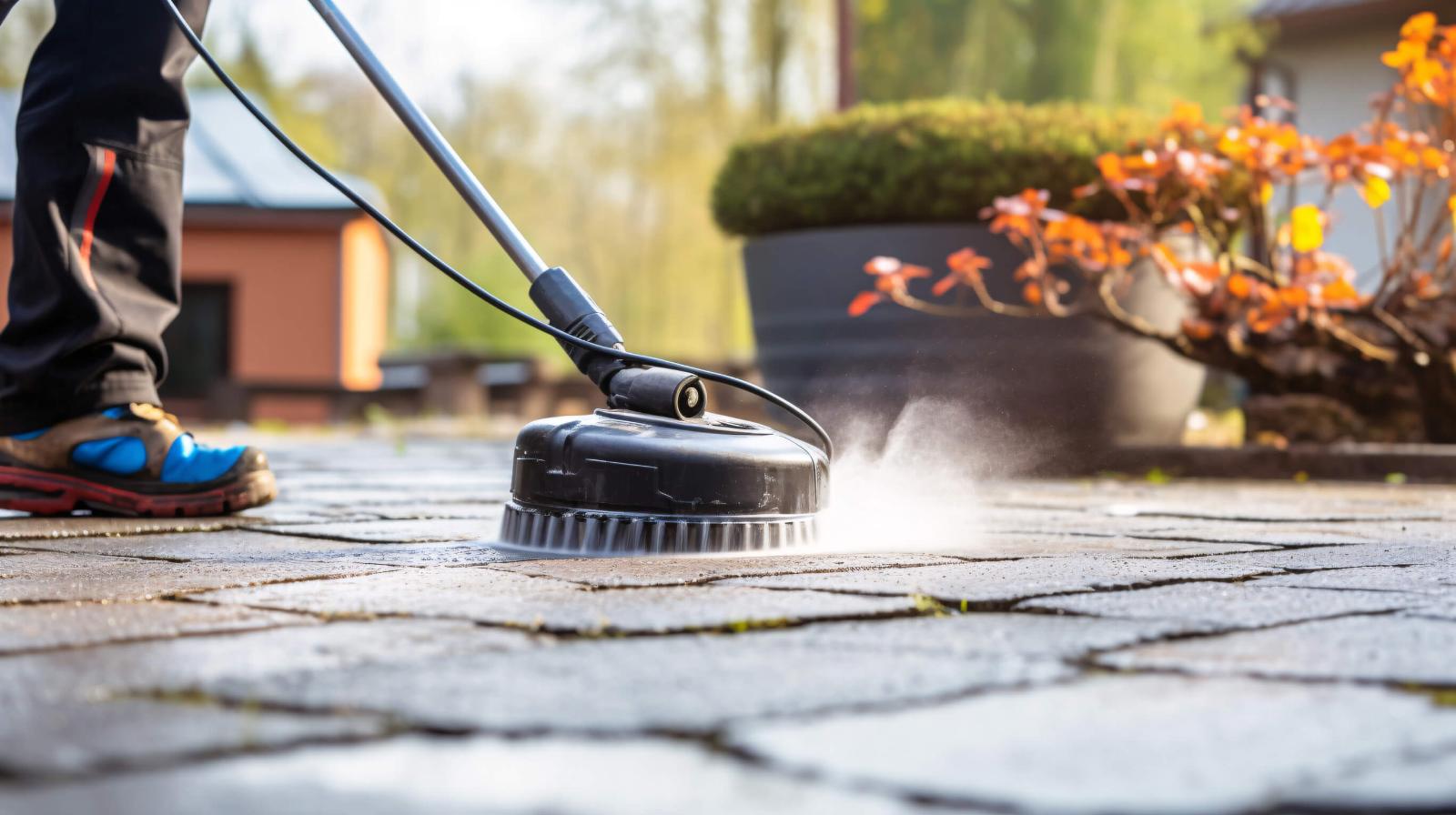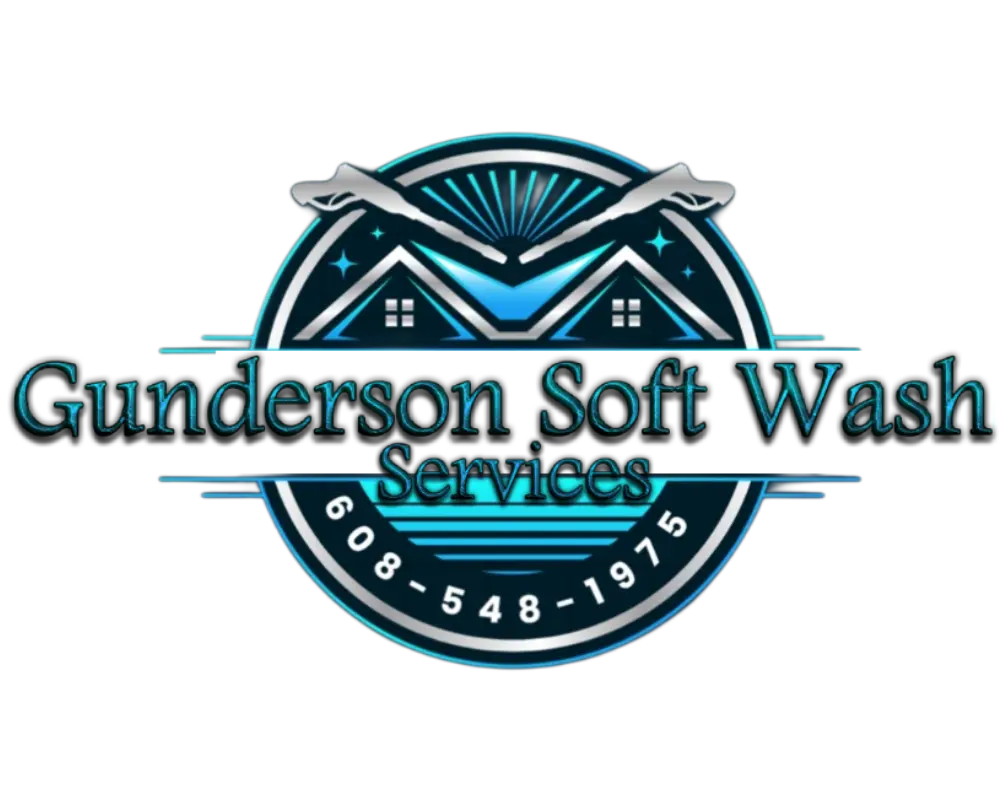Driveway washing
Restore your Mauston or Wisconsin Dells property's curb appeal with professional driveway washing from Gunderson Soft Wash Services! Our expert team uses advanced pressure washing techniques to blast away tough dirt, grime, oil stains, and algae, revealing the pristine beauty of your paved surfaces. We specialize in driveway cleaning for homeowners and businesses across Mauston, Wisconsin Dells, and surrounding Central Wisconsin communities. Get a free quote today and see the difference a sparkling clean driveway can make!
Can oil stains be removed too?
Yes, our experts utilize the latest technologies along with top rated cleaning products to restore your home's drive way to pristine condition.

Does cleaning a driveway really add curb appeal?
Absolutely! A clean driveway significantly enhances the curb appeal of your entire property, making it look well-maintained and inviting. It's often one of the first things visitors or potential buyers notice.
Frequent Questions Answered
Yes. Algae, mold, and mildew can hold moisture against the surface, accelerating the breakdown of concrete, asphalt, or pavers. Oil and other chemical spills can also degrade the material. Weeds growing in cracks can widen them, leading to further damage.
Yes, effectively. Mold, mildew, and algae create very slippery surfaces, especially when wet. Cleaning thoroughly removes these organic growths, making your driveway much safer to walk and drive on.
For most concrete, asphalt, or paver driveways, pressure washing (using appropriate pressure and techniques) is the most effective method. Soft washing would likely not provide enough force to clean deeply embedded grime.
While water alone can remove loose dirt, cleaning solutions greatly enhance the results, especially for mold, mildew, algae, and oil stains.
While it's hard to put an exact number on it, an appealing and well-maintained exterior, including a clean driveway, contributes positively to property value and marketability. It shows that the home has been cared for.
Soft washing is generally not the primary method for concrete or asphalt driveways, as they are durable surfaces that benefit from the higher pressure needed to remove deep-set dirt, tire marks, and oil stains. Soft washing is excellent for delicate surfaces like roofs or siding, where high pressure would cause damage.
Yes, improper pressure washing can cause damage.
Concrete: Too high pressure, holding the nozzle too close, or using a very narrow (0-degree) tip can etch, pit, or leave "wand marks" on concrete, especially newer or improperly cured concrete.
Asphalt: High pressure can loosen aggregate and damage the binder, shortening the life of the asphalt. A lighter touch is required.
Pavers: Excessive pressure can dislodge joint sand, damage the paver surface, or even crack them.
Professionals typically use commercial-grade pressure washers with higher GPM (gallons per minute) and often a PSI that can range up to 4000+ for concrete. They also utilize specialized surface cleaners for uniform cleaning and speed, and have access to more powerful, targeted cleaning solutions and post-treatment sealants. Our knowledge and experience help prevent damage. While we cannot blame anyone for considering a neighbor who's offering to do it for less money, please keep in mind that professionals also carry an insurance that protect you in the event that something goes wrong and damage is caused.
Experience & Reviews: Check online reviews (Google, Yelp, etc.) and ask for references.
Insurance: Ensure they are fully insured (liability and workers' comp) to protect you from accidents or damage.
Equipment: Ask about their equipment (commercial-grade pressure washers, surface cleaners).
Process: Inquire about their cleaning process, including pretreatment, main wash, and post-treatment.
Pricing: Get a clear, written estimate.
Guarantees: Do they offer any satisfaction guarantee?
Yes. Humid, shaded, and consistently wet conditions promote the growth of algae, mold, and mildew, necessitating more frequent cleaning.
Sealing is highly recommended for concrete and pavers.
Benefits: Protects against stains (oil, rust, tire marks), inhibits weed growth in cracks (pavers), resists moisture penetration (reducing freeze-thaw damage), enhances color, and extends the life of the driveway. Asphalt driveways are also often sealed.
Yes, pressure washing, combined with the right chemicals can effectively remove tire marks.
Yes, if inexperienced individual is performing the taks, they can cause damage to the driveway, plants, and land scape. Professionals use certain technique and pressure levels to minimize the likelihood of this.
A typical residential driveway can take anywhere from 1-3 hours for a professional, depending on its size and condition. DIY can take significantly longer.
Generally, once every 1-2 years is sufficient for most driveways. However, if you live in a humid area (like Wisconsin Dells, where algae and mold thrive), have a lot of tree cover, or frequent oil spills, you might need to clean it annually.
Address spills quickly.
Trim overhanging trees or shrubs to reduce shade and falling debris.
Consider applying a sealant after cleaning.
Regularly sweep or blow off loose dirt and leaves.
Paint can be very difficult. Sometimes a strong stripper and aggressive pressure washing can remove it, but it risks damaging the surface. Other stubborn stains like sap or certain dyes may require specific chemical treatments.
Clear the driveway of all vehicles, outdoor furniture, toys, and debris. Sweep off any loose dirt or leaves. Protect nearby plants by wetting them down thoroughly before applying chemicals and rinsing them off afterward.
Once the driveway is dry, it's generally safe to walk and drive on. This can vary from a few hours to a full day depending on weather conditions (sun, wind, humidity) and whether any sealants were applied (which may have their own curing times).
